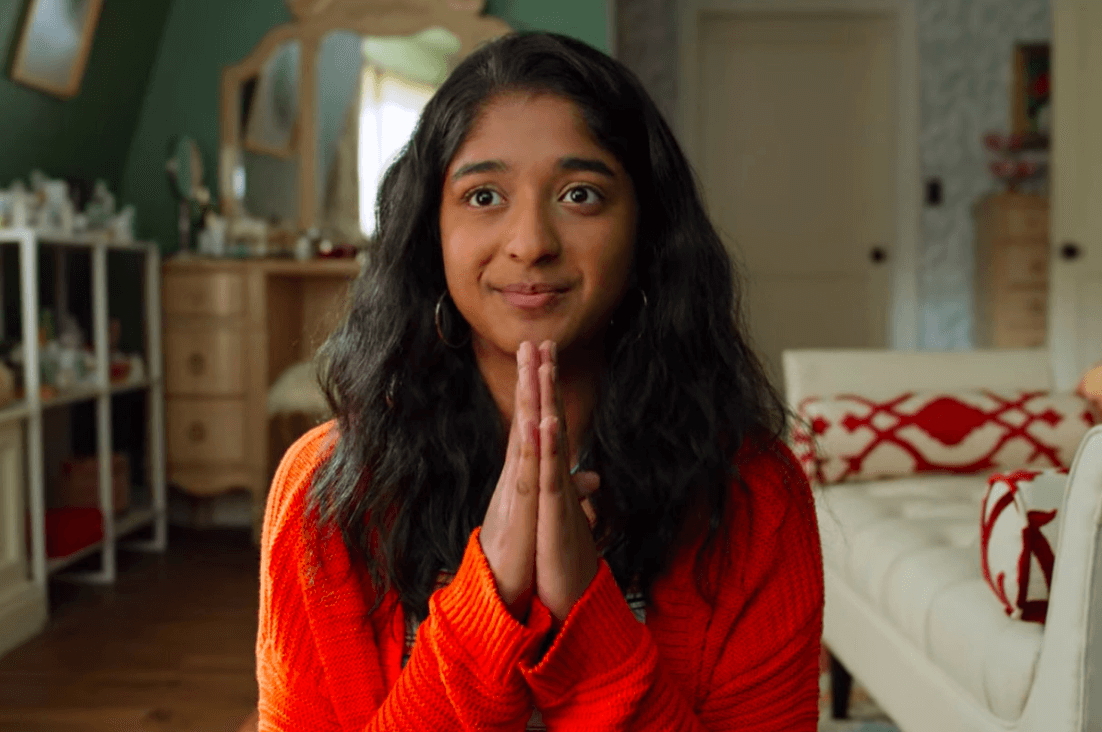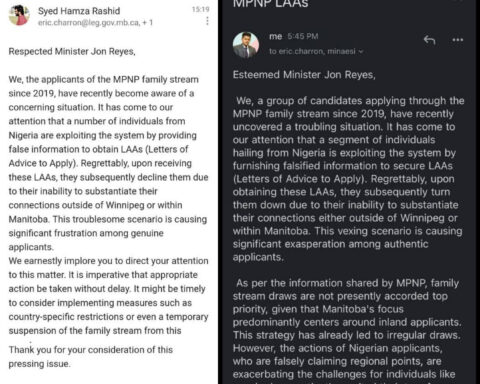Never Have I Ever is a bold Netflix television series that honestly represents the first generation of South Asians growing up in North America.
From the first episode to the last, the show is entertaining, funny, and most importantly, authentic to the maximum. As a writer, producer and creator of the show, Mindy Kaling is genuine and ‘shameless’ (in a good way) in expressing her character’s deepest desires. Kaling not only explores her cultural identity but also critiques it with brilliant sarcasm.
At the very beginning of the show we see the show’s heroine, Devi Vishwakumar praying as we begin a dive deep into her mind.
Her prayer goes like this: “Hey Gods, it’s Devi Vishwakumar, your favourite Hindu girl in the San Fernando Valley.”
Surely, an unfamiliar way to communicate with the gods.
Just before the first day of high school, Vishwakumar’s wishes become more impassioned. In her prayers, she begs the gods for a hot boyfriend who can “rock her all night long.” Whoa! Fasten your seat belts dear Indian parents — it’s clear this show is going to talk about teenage sex, a subject that makes moms and dads squirm.
Apart from addressing sex and relationships, Kaling also takes on the South Asian cultural trope of our gossip loving aunties. The show’s narrator (John McEnroe) describes the aunties, as “older Indian women who do not have any blood relation to you but are allowed to have an opinion about your life and all your shortcomings.”
What a colourful and apt way to describe one of the most controversial groups of humans in the Indian subcontinent. Bravo!
Indian teen rebel
There are other South Asian characters in Canadian television, caught between East and West, and struggle with a personal identity crisis. But unlike Vishwakumar, the other characters, while willing to tangle with dangerous criminals, are not brave enough to rebel against their own family and culture.
For instance, the male protagonist of CTV’s The Indian Detective is named Doug, a police constable of Indian descent from Toronto, who returns to India to visit his father. Doug struggles to adapt to the Indian ‘system’, but does not challenge its norms. Instead he accepts his limitations.
“In Canada, if you needed to identify me I would be Indian, but in India 100 percent, I am not Indian,” Doug confesses.
The female protagonist of CBC’s The 410, while also unconventional, falls short of breaking new ground in its portrayal of Indian families. Suri Deol, is an Indo-Canadian woman who longs to be a social influencer, yet becomes embroiled in a life of crime. The show depicts her confronting all sorts of bad guys, but it’s her grandmother that she fears the most.
“What will people say? Your ugly hair. All these holes in your pants. Who is gonna marry you? Half naked! You are going to ruin our name in our community,” yells her Nani, as Deol withers under the criticism.

Unlike those other characters, Vishwakumar rebels against her family. When her mother and uncle criticize her for wearing sweats and running outside at night Vishwakumar instantly defends herself. When her mother plans to go back to India, Vishwakumar immediately raises her voice to challenge the decision.
Bold, honest and insightful, yet, Never Have I Ever is not free of stereotypes regarding Indian arranged marriages. We see Vishwakumar’s mother put extra effort into portraying her niece, Kamala, as a woman who can only cook. And the groom’s parents, while interviewing Kamala as a possible bride, seem mostly interested in her ability to make idli and dosa (rice cakes and crepes), instead of her remarkable academic career as a PhD student.
Confronting the immigrant dilemma
While dealing with the daily drama of a first-generation teen, Never Have I Ever frequently pulls on the heart strings of newcomers. This series begins with the story of a new immigrant couple trying to pursue the American dream in Los Angeles. By the last episode of the season, they are facing the perpetual immigrant dilemma – to stay and struggle – or to return home.
The emotionally-charged last episode reminds me of my own 11 year-old niece Nazifa. She could not protest like Vishwakumar, and reluctantly relocated to Bangladesh, from Australia, with her parents. Like Devi, Nazifa embraced Western culture, while her parents were struggling to raise her in a traditional South Asian manner.
Sweet, sarcastic and constantly struggling to make her way through all the odds, Vishwakumar is both an inspiration for first generation teenagers, and a light-hearted warning for their parents about the rocky road ahead.
This story has been produced under NCM’s mentoring program. Mentor: Judy Trinh
Iqbal H. Chowdhury is a journalist and filmmaker. He has covered major film festivals around the world including Cannes, Berlinale and TIFF. Chowdhury completed his post-graduation degree from Centennial College, Toronto, in Advance TV and Films. Before moving to Canada, he worked for the daily Prothom Alo, the largest newspaper in Bangladesh, for 10 years.





